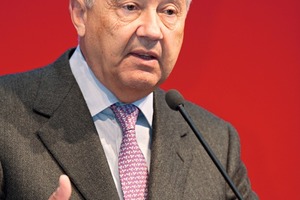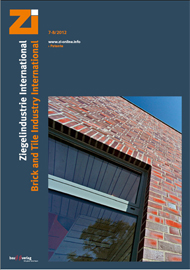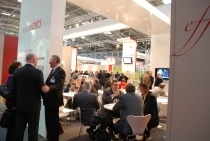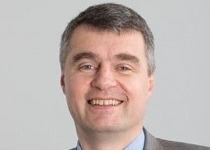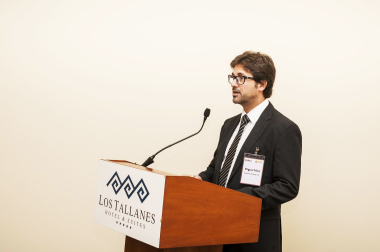European machine manufacturers well set up in terms of technology
Since 2010, business for European technology suppliers to the ceramics industry has in general been picking up. “But, looked at more closely, the picture is more complex”, said Paul Eirich, Spokesman for ECTS, the European Ceramic Technology Suppliers, a grouping affiliated in the Verband Deutscher Maschinen- und Anlagenbau (VDMA, Germany’s engineering federation).
Everywhere that ceramics meets up with metallurgy and raw materials extraction, things are going well. Investment here is strong worldwide. In the area of catalytic converters and particulate filters too, demand is rising. The suppliers of products to the building industry, however, have had a tough time of it in recent years and they are recovering only slowly. In the brickmaking industry, investment is still at a relatively low level. The big gap still evident between the technological level of industrialized countries as compared to developing or growth regions of the world is not making market entry any easier for European manufacturers. The impetus for the sector is still coming mainly from Asia.
Seeing sustainability as economic impetus
“In terms of technology, our industry is very well set up”, affirmed Eirich. For example, the manufacturers have been able to drastically reduce lifecycle costs through consistently optimizing energy efficiency, processes and the use of materials in machinery and plants.
According to a report by Roland Berger entitled “Mechanical Engineering – Contribution to Energy Efficiency”, commissioned by the VDMA, companies in Germany are saving around € 7 bill. per year, as compared to the end of the 1990s, simply through the use of modern machinery and plants. In 2022 the annual savings potential could be as much as € 20 bill. Sustainability has not only an ecological and a social dimension, it also has an economic impact. This needs to be communicated worldwide to investors and customers, said Eirich.
One bone of contention, according to Eirich, is the Eco-Design Directive of the EU, which affects laboratory and industrial furnaces and kilns. “We believe that these directives are superfluous because our sector is in any case working on innovative solutions for energy-intensive plant, driven as we are by the market and our customers”, Eirich explained. Because most industrial kilns are made to the requirements of individual customers, he pointed out, they are as such excluded by definition from an attempt at standardization “by decree”. In addition, in a lifecycle analysis, operating costs are far higher than procurement costs. The customers then clearly have their own best interests at heart and so they will naturally want an optimized “eco design”, one that operates most energy-efficiently. Moreover, the EU itself has developed an instrument that operates according to market rules, with the introduction of emissions trading, and this, too, is driving industry to finding new solutions. Under the leadership of Klaus Appel from Lingl, the “Energy Efficiency Working Group” in the ECTS represents the interests of European kiln-builders to the EU – vigorously, constructively, and in cooperation with other European associations.
ECTS initiatives
One focus is marketing in India. The companies have been active in the country for two years, working as advisors on modernization in the Indian heavy clay industry. The machine manufacturers are also keen to promote brick as a high-quality building material. In order to support their endeavours, the ECTS has produced a film about brick, and this was premièred at “Heavy Clay Day” at Ceramitec. At the show, the ECTS also organized a Schools Day, to encourage young people to consider a career in the technical side of the sector.

